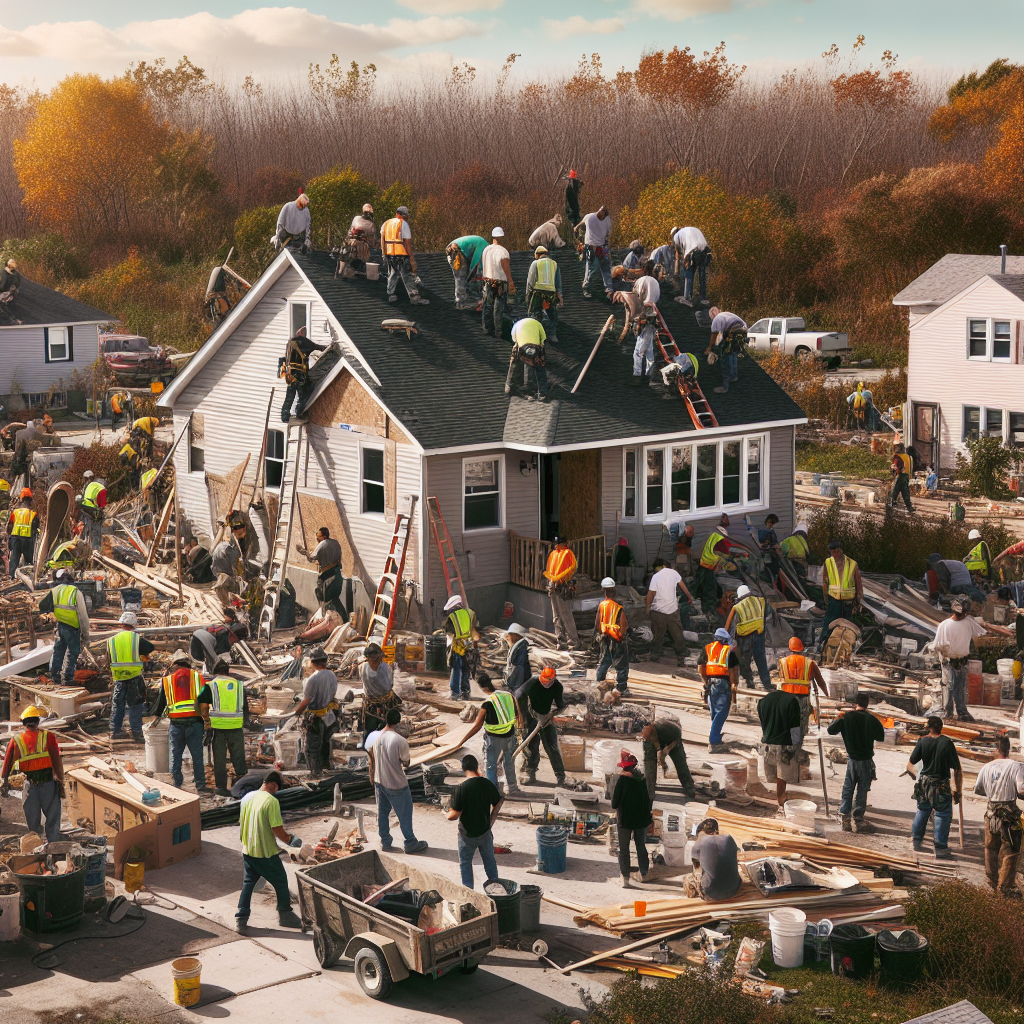November Sees Rise in Single-Family Construction Post-Hurricanes
In the wake of devastating hurricanes, the construction industry often faces significant challenges. However, November 2023 has seen a surprising uptick in single-family home construction, particularly in regions previously affected by these natural disasters. This article explores the factors contributing to this rise, the implications for the housing market, and the broader economic impact.
Factors Driving the Increase in Construction
Several key factors have contributed to the increase in single-family home construction in November:
- Government Incentives: In response to the hurricanes, federal and state governments have introduced various incentives to encourage rebuilding efforts. These include tax breaks, grants, and low-interest loans for construction projects.
- Insurance Payouts: Homeowners who suffered losses have received insurance payouts, which they are now using to rebuild or construct new homes.
- Improved Building Codes: New regulations have been implemented to ensure that homes are more resilient to future storms, prompting a surge in construction as homeowners seek to comply with these standards.
- Increased Demand: With many homes destroyed or damaged, there is a heightened demand for new housing, driving construction companies to ramp up their efforts.
Case Studies: Rebuilding Efforts in Affected Areas
Several regions have become focal points for the surge in construction activity:
Florida’s Gulf Coast
Florida’s Gulf Coast, heavily impacted by recent hurricanes, has seen a significant increase in construction permits. Local governments have streamlined the permitting process, allowing builders to start projects more quickly. Additionally, community organizations have partnered with construction firms to provide affordable housing solutions for displaced residents.
Texas Coastal Bend
In Texas, the Coastal Bend area has experienced a similar trend. The state government has allocated funds specifically for rebuilding efforts, and local builders have reported a 20% increase in single-family home projects compared to the same period last year. This growth is supported by a combination of public and private sector initiatives aimed at revitalizing the region.
Economic Implications of the Construction Boom
The rise in single-family home construction has several economic implications:
- Job Creation: The construction boom has led to increased employment opportunities in the building trades, providing a much-needed boost to local economies.
- Supply Chain Impact: The demand for construction materials has surged, benefiting suppliers and manufacturers. However, this has also led to increased prices and potential shortages.
- Real Estate Market Dynamics: The influx of new homes is expected to stabilize housing prices in affected areas, making homeownership more accessible for many families.
Challenges and Considerations
Despite the positive trends, several challenges remain:
- Labor Shortages: The construction industry is facing a shortage of skilled labor, which could slow down projects and increase costs.
- Environmental Concerns: As rebuilding efforts continue, there is a need to balance development with environmental sustainability, particularly in ecologically sensitive areas.
- Long-Term Resilience: Ensuring that new constructions are resilient to future hurricanes is crucial to prevent repeated losses.
Conclusion
The rise in single-family home construction in November 2023 marks a significant step forward in the recovery process for hurricane-affected regions. Driven by government incentives, insurance payouts, and increased demand, this trend offers hope for economic revitalization and improved housing resilience. However, addressing labor shortages, environmental concerns, and ensuring long-term resilience remain critical to sustaining this growth. As communities rebuild, the lessons learned from these efforts will be invaluable in preparing for future challenges.



